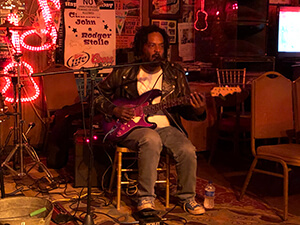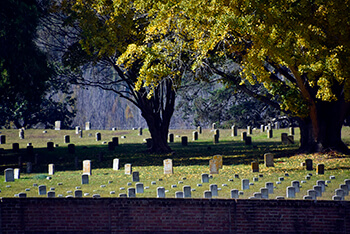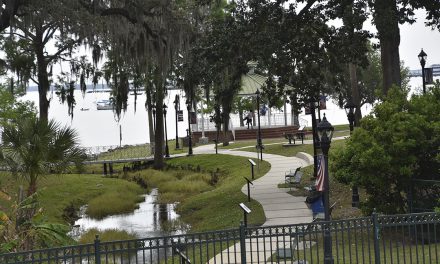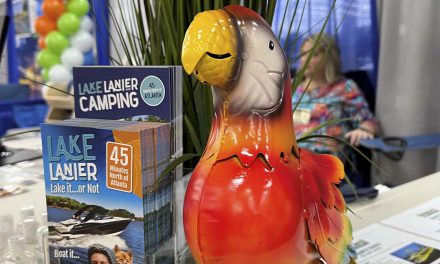Others may lay claim to the title, but once you’ve been to the Mississippi Delta, there’s no question about the real birthplace of the Blues. In fact, there’s a historic marker at Dockery Farms off Highway 8 in Sunflower County, Mississippi, that declares it, sort of.
No matter. If you haven’t taken the trek from Tunica to Vicksburg, you’re missing one of the most significant regions for musical history in America. And the folks of the Mississippi Delta back it up in spades.
From the Gateway to the Blues Museum and the Hollywood Café in Tunica along the Mississippi River to Vicksburg, the birthplace of Bluesman and “Poet Laureate of the Blues” Willie Dixon, and the site of the Battle of Vicksburg during the Civil War, the Mississippi Blues Trail tells all.
More than 180 historic commemorative markers designate spots in the Magnolia State and beyond that honor musicians, farms, cafes, clubs and plantations that factored into the development of the blues. Some go back more than 160 years and mention the African-American field workers and slaves who blended spirituals, work songs and Rhymed narrative ballads to ease their pain from the long days of vending over cotton and tobacco fields to plant and pick.
Tunica’s Gateway to the Blues Museum and Visitors Center, operating in a former storage barn relocated to its current location on Highway 61, features an extensive collection of blues memorabilia, interactive displays and even a recording studio where visitors can make their own blues music. Large murals of folk art, a collection of guitars and profiles of Mississippi Bluesmen set the tone to follow Highway 61 and the trail as the story of the blues unfolds.
Stop by the Hollywood Café nearby in Robinsonville, especially if you’re a fan of singer/songwriter Marc Cohen. The roadside café, known for its catfish, burgers and meat-and-three specials, claims the invention of fried dill pickle chips. The lyrics of Cohen’s song, “Walking in Memphis,” recreate scenes from the 1960s at the Hollywood, including “Muriel plays piano every Friday at the Hollywood,” (and yes, there was a Muriel and her piano is still in the café), plus the famous catfish served there.

Lucious Spiller playing at Red’s Blues Club
Right down the road Clarksdale’s claim to fame is live blues music every night of the year. From Ground Zero Blues Club owned by actor Morgan Freeman to Reds Lounge, and about another half-dozen juke joints, you’re likely to meet people from around the world in this quiet little town that’s filled with surprises. The clubs don’t look like much, but step inside and turn the clock back decades. At Red’s, which featured contemporary bluesman Lucious Spiller, former back-up to Larry Davis and Big Jack Johnson.
These clubs put visitors up close and personal to the musicians, who often chat with the audience on breaks. We sat next to a couple from Australia who have been coming to Clarksdale for years just to hear the music. A couple of guys from Sweden said that Clarksdale is the place to come for blues.
Stay overnight at the Shack Up Inn, an eclectic collection of sharecroppers’ shacks relocated right next to Highway 61. Be prepared. The accommodations are just like they were when field workers stayed in them on working plantations long ago. They’re humble and simple with screen doors, small front and back porches and wood-frame construction. One of my traveling companion’s shower knobs were actually vice grips. They are, however, heated and air-conditioned, albeit with window units.
Travel another 40 miles south on Highway 61 and take the turn off on Highway 8. You’ll find what’s called, with a question mark on the historic marker, the real Birthplace of the Blues, Dockery Farms near Cleveland. According to local sources, many African-Americans came to work on the Dockery cotton plantation farm from the late 1800s through the early 20th century and it was their music that laid the foundation for the blues. Several of the farm’s buildings still stand, including the now dormant cotton gin and the Dockery Farms Service Station. Wander the grounds to get a sense of the early days of blues. If you sit still and listen, you may even hear echoes of early blues music there.
Downtown Cleveland’s charm, bustle and small-town atmosphere will draw you in. From the new Cotton House Cleveland Hotel and the town’s public art to all kinds of shops and food stops, a leisurely walk along main street can reveal some surprises.
Cleveland is the home of the Fighting Okra, the sports mascot of Delta State University. Heidi’s monogram store has gifts, monogrammed clothing and a wide selection of Delta State-branded goodies. It’s a great place to purchase a “Fighting Okra” T-shirt emblazoned with “Home of the Fighting Okra: The World’s Most Violent Vegetable” or “Fear the Okra.” A wonderful souvenir indeed.
Aside from Los Angeles, the only other Grammy Museum in the country is in Cleveland on the campus of Delta State. The 26,000-square-foot state-of-the-art interactive museum showcases the birth of the blues as well as history of musicians and songwriters across the nation. In addition to permanent displays, traveling exhibitions have included the history of MTV, which continues through June 1, 2022.

Vicksburg cemetary
Two hours south via Highway 61, Vicksburg may be best known for the Battle of Vicksburg during the Civil War. Touring the Vicksburg National Battlefield to view many state monuments to various regiments and heroes of the North and the South put the importance of the events that took place there more than 175 years ago. The USS Cairo gunboat on display is one of several river ironsides used in the Civil War. Take a self-guided tour of the park or download the National Park Service app and the Vicksburg Battle app to further explore the park and the Vicksburg Battle app for more history and details.
Vicksburg has created a City Attraction Passport to encourage visitation to its many museums. Once visitors get stamps from five different museums they can return to the Visitor Information Center for a free #VisitVicksburg T-shirt. Be sure to see the Old Depot Museum filled with model trains, the Beidenharn Coca-Cola Museum and the Jesse Brent Lower Mississippi River Museum. For a different perspective of the War Between the States, the Vicksburg Civil War Museum has been curated by African-American Charles Pendleton. His displays include the letters of secession from all Southern states, a slave cabin and slave artifacts.
Take a walk along the riverfront to view the 32 murals that show the history of Vicksburg. And visit shops like The Attic Gallery filled with southern folk art, contemporary fine art, regional pottery, glass and jewelry.
Consider a trip to the Mississippi Delta where the blues were born. Special and seasonal events are detailed at msmbluestrail.org.
Photos: by Pamela A. Keene







